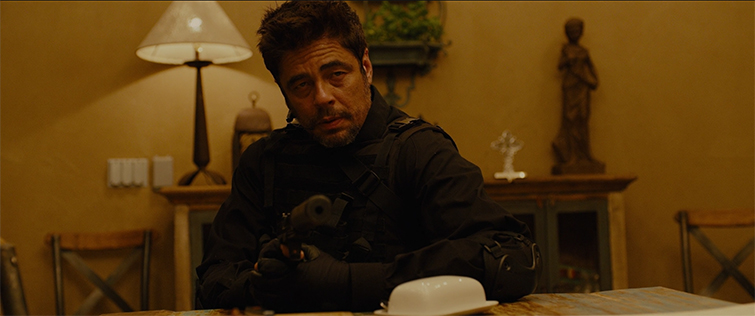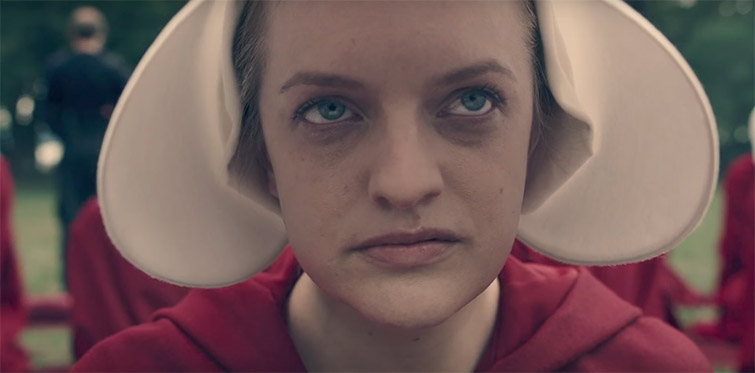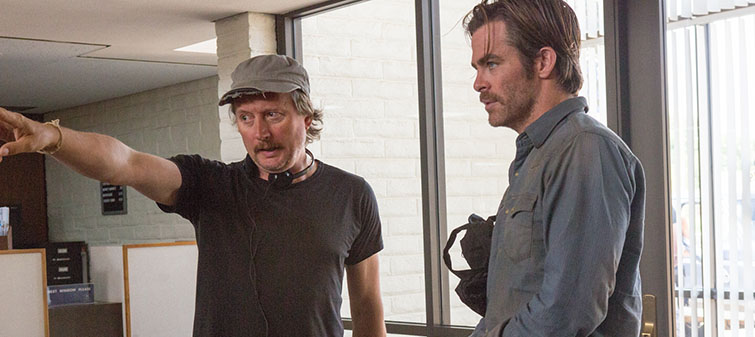
Directing Challenges: How to Communicate Effectively with Actors
Here are a few different techniques you can try out to get the best performances possible from the actors on your project.
Directing is all about collaboration. Yes, you’re there to fulfill your vision, but you must also work with your cast and crew and bring disparate ideas together in a cohesive whole. You need to be able to develop a creative and working relationship with your department heads and — perhaps, most importantly — your actors.
So how do you go about that?
Who You’re Working With

Image via Sicario (Lionsgate).
Acting is a unique job. An actor must be able to draw on his or her own experiences to relate to a fictional character and then, in a sense, bring that character to life. Every actor has his or her own process for doing this (research, rehearsal, costume — maybe even method acting), but it is still a process. Authenticity does not come from a step-by-step blueprint but rather an emotional and physical journey. This is critical for a director to understand if he or she is to work with an actor.
Directors have to stop asking actors to give a certain result . . . If the director can think about igniting the character and what the character is trying to do in the situation than the director will get a more authentic performance. —Mark W Travis
A common mistake among directors is simply telling their actors things like “Give me more anger this time!” These directors seem to think that by asking for an immediate result, they’re going to get something natural. But remember that acting is a process, and you are the director. Speak with your actor. Join them for a moment on their journey. Your title is Director, not Demander, so work with them and their ideas and emotions and direct them toward a desired goal. Help construct the scene and break it down with them. Analyze the situation from the viewpoint of the character.
This is why actors will often ask “What’s my motivation?” instead of “Tell me which emotion you want to see.” You need to study your script and really understand your characters and be able to verbalize, clearly and concisely, what any character’s motivation is at any given moment. Do not demand an immediate result; instead, motivate and direct your actors toward a goal.
The actor’s job is to be selfish of their character. They’re the experts in who they are and what they’re trying to do. My job, my expertise is in how it fits into the whole. And if you start to mutate what they’re bringing to it so it only serves the narrative than you’re bereft of characterization. —David Fincher
- Interview: Directing Projects with Powerful Emotional Themes
- Jonah Hill on Writing and Directing Mid 90s and Tips He Learned from the Greats
- 5 Filmmaking Tips for Acting and Directing (At the Same Time)
Keep an Open Mind

Image via The Handmaid’s Tale (Hulu).
When it comes to directing actors, you have to be flexible. It’s rare for an actor to give you the exact performance you envisioned. But acting is a living process, not something you can carbon-copy. Your actor will have his or her own ideas about how to play the character. Work with them; compare ideas and approaches. See which of their ideas works for your vision, which ideas you both can mold to work with the film as a whole, and so on.
Don’t hold your actors to an impossible standard. Work with them to bring your characters to life.
Every actor is different. You have to be a different director, I think, with different actors. I do, anyway. I don’t demand that they conform to how I direct. —Steven Spielberg
Like I said, be flexible. Not every director likes to do rehearsals, but personally I feel it really helps — if, for no other reason, then to get to know your actors and learn how best to communicate with them.
Rehearsals or not, keep in mind that your direction affects your actor. Did you get the desired result or not? If not, change up your approach. This is another reason that being clear and concise is important — because it not only keeps your actor from feeling overwhelmed (or even potentially pulling them out of an emotional moment), it also allows you to better assess your approach as you go.
Someday you may run into a difficult actor. Perhaps they’ll feel their approach is superior to yours. Or maybe they have too many demands for their food and trailer and compensations, etc. However, the last thing you want to do is butt heads with a difficult actor. Swallow your pride and work with them.
- 3 Boring Cliches to Avoid When Directing a Music Video
- The Best Quotes from Directors, Editors, and Everything in Between
- Your Crash Course in Assistant Directing
Work with Them, Not for Them

Image via Hell or High Water CBS Films.
If you find yourself in a challenging situation, don’t sacrifice the hierarchy. You are the director, not some problematic actor. But calm down and take a step back. As Clint Eastwood said in the video above, sometimes “You need to be an amateur psychologist.” Work with them, and try to figure out what is putting them on edge — and what satisfies them.
Overall, remember that acting is a process, and you need to be flexible and guide your actors to your goal, not make demands of them.
- How This Oscar Nom Edited Downsizing While Directing His First Feature
- Directing Fight Cinematography: The Right Way and the Wrong Way
- Interview: Writing and Directing Multi-Protagonist Screenplays
Cover Image via There Will Be Blood (Miramax).
Looking for more filmmaking tips and tricks? Check out these articles.
- Production Tips: The Four Secrets of a Successful Documentary
- Video Tutorial: Determining The Best Lens for Your Project
- The Best Quotes from Directors, Editors, and Everything in Between
- Tutorial: Removing Audio Pops and Recording Audio Differently
- How to Change the Color of Exterior Lights in After Effects





